Since the last edition of the SANGO Diaries, a number of readers have asked about the different vegetables. So I thought I would write a special Food Edition of the SANGO Diaries.
As most of you know, SANGO-Kenya’s goal is to improve health by increasing food security and improving nutrition. We are initially focusing on raising and increasing consumption of African indigenous vegetables. These vegetables were consumed routinely until relatively recently, when they were replaced by more western crops, especially maize. However, the African indigenous vegetables are more climate resilient, especially important as the climate continues to change. They also provide many essential nutrients (see table below). And they have a relatively short growing cycle.
In Constance’s original research in 2017, many of the participants reported that they knew they should consume more of these vegetables, however, they were not readily available; when they were, they were expensive; and they didn’t like the taste.
Already we have trained the farmers how to raise them – and do so in more environmentally sustainable methods.
We selected five vegetables, all traditional African greens, that are rich in nutrients, all traditional African greens. Please note: this African Nightshade is the same family but not one of the poisonous variety. I can assure you that I ate it – and all below – many times. Loved them and lived to tell the story.
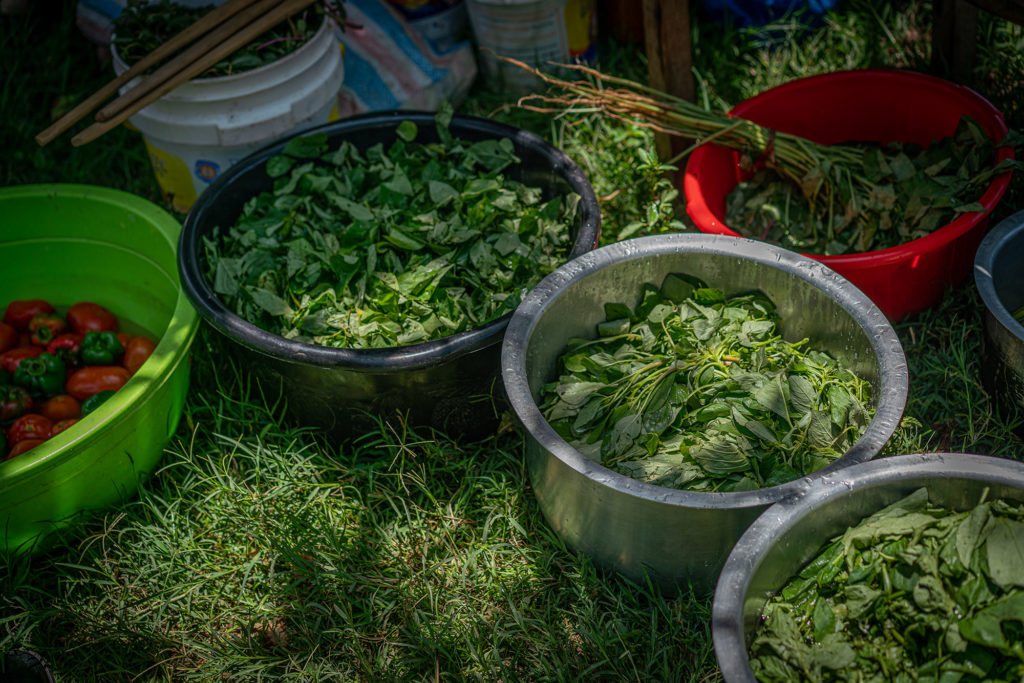
| Vitamin A | Vitamin C | Vitamin E | Folate | Calcium | |
|---|---|---|---|---|---|
| Vegetable | Helps prevent illnesses such as measles and respiratory infections, helps prevent blindness, and helps skin health | Critical for the growth and health of connective body tissues and immunity | Anti-oxidant, helps prevent heart disease, also needed for healthy vision, the brain, blood and skin | Women of reproductive age deficient in folate have higher risk of giving birth to children with birth defects such as spina bifida | Required for bones, teeth, proper muscle functioning |
| Amaranth leaves | x | x | |||
| Spider plant leaves | x | x | x | x | |
| African Nightshade | x | x | |||
| Cowpea Leaves | x | x | x | x | x |
| Jute Mallow | x | x | x | x |
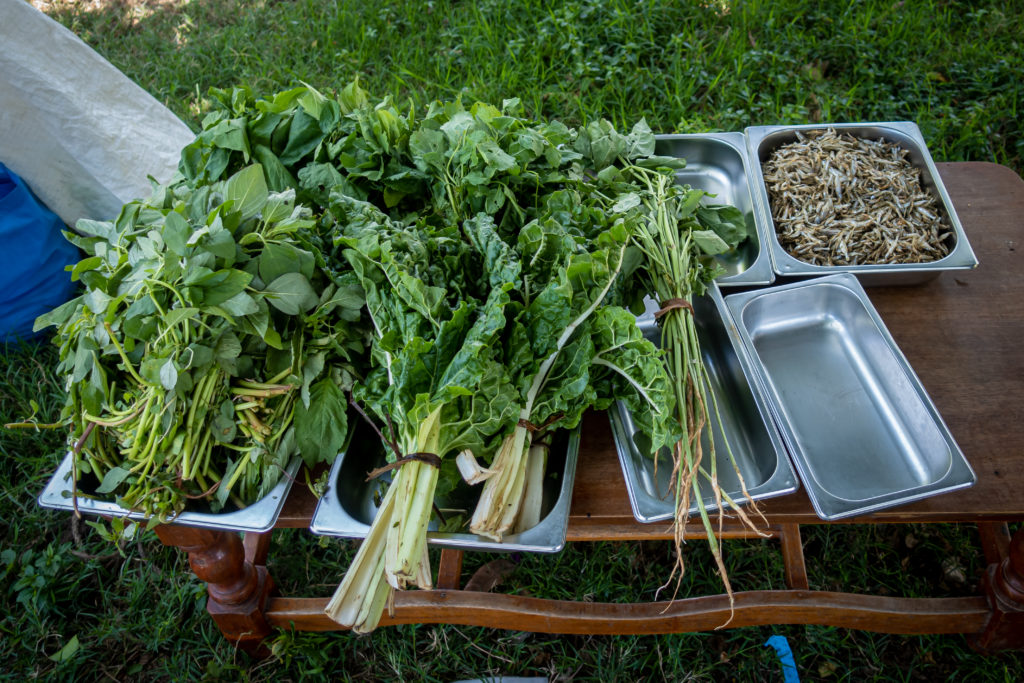
Food preparation is important for taste as well as maintaining the availability of the nutrients. For example, oil is needed to absorb vitamins A and E. Vitamin C and B vitamins such as folate are water soluble. If you boil vegetables too long, these vitamins are lost.
The farmers told us they tend to boil the vegetables until all water evaporates. As noted above, that method loses many nutritional benefits. To address that issue, Benter, our advisor on gender, home economics, as well as agriculture, developed recipes with Constance’s childhood friend and now chef, Tom, that use easily available ingredients, taste great, and maintain the nutrition benefits. We held a demonstration training where Benter, Tom, and the women prepared the foods and our nutrition expert Fredrick explained how important it is to follow the above practices to maximize nutrition.
All of the farmers enthusiastically participated in the preparation – and the eating. They really enjoyed them – nothing was left. And they really paid attention. I went back just a few days later to say good-bye to them. They surprised me with a farewell lunch – and made several of the vegetables that had been part of the training using the methods that had been taught. So delicious…and a bittersweet farewell.
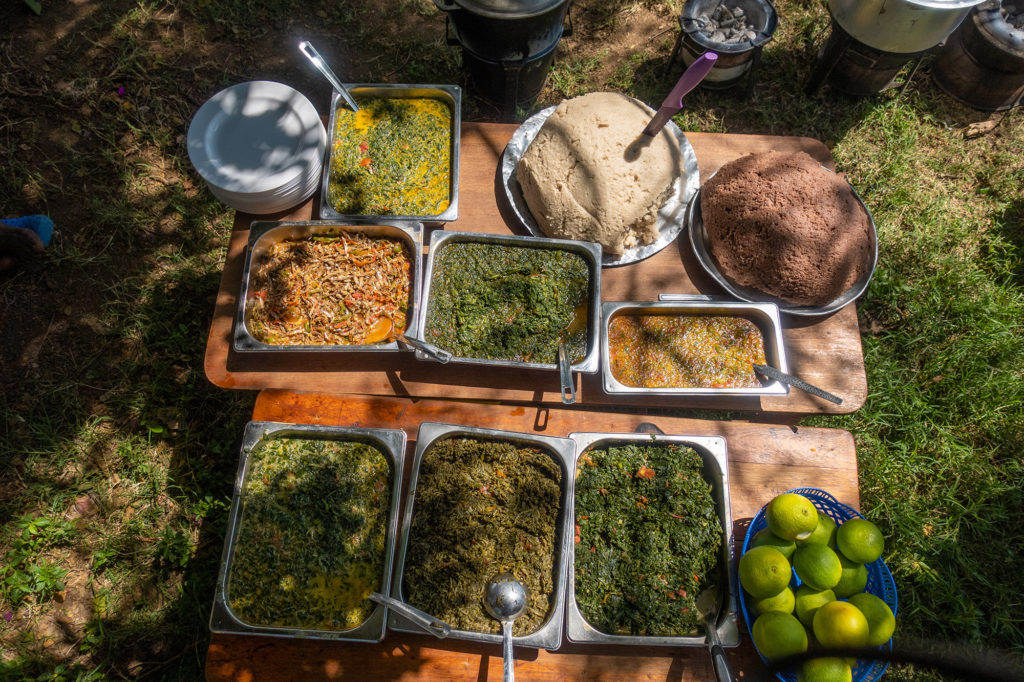
I have been home now for more than two weeks. Constance and I are in constant contact with Bente, Fredrick, Dom, and Helma, working with them to continue to manage and evaluate the pilot. SANGO-Kenya’s activities are more important than ever now. Just as here, movement is limited, markets (versus restaurants) are closed, and people’s businesses are threatened. We are trying to make sure the farmers can maximize the output as well as providing information on the coronavirus. More details will be provided in the next issue.
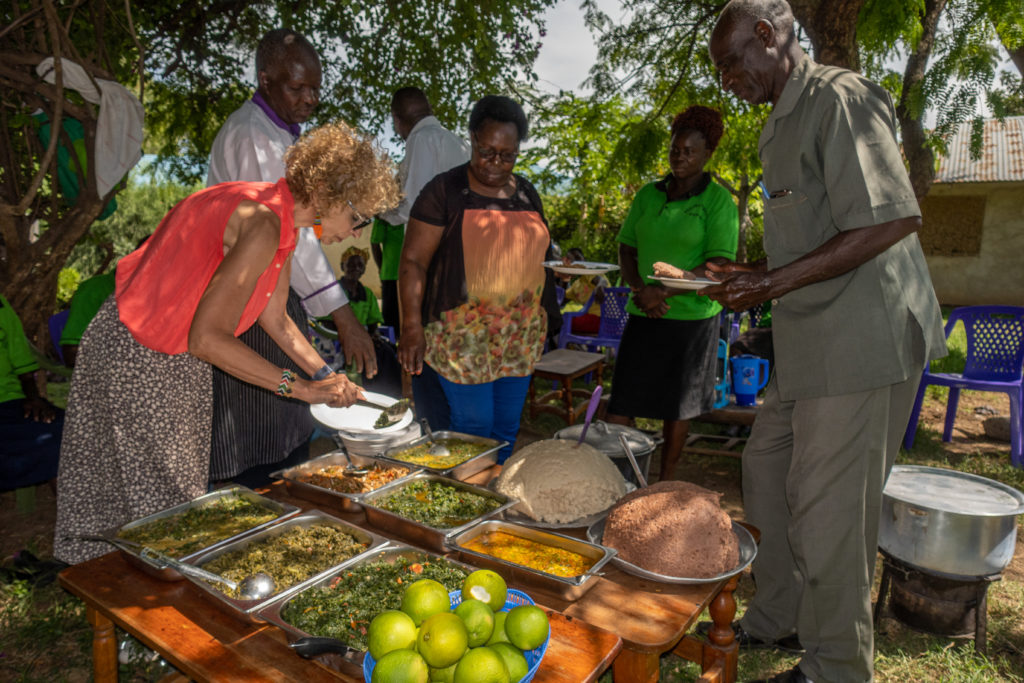
Note:
As with the last chapter, the photographs here are thanks to my good friend and photographer Etan Rozin, who joined the project for part of the last week I was there, before he had to cut his trip short due to coronavirus flight cancellations. To see more of Etan’s photographs, please go to www.rozinphotos.com
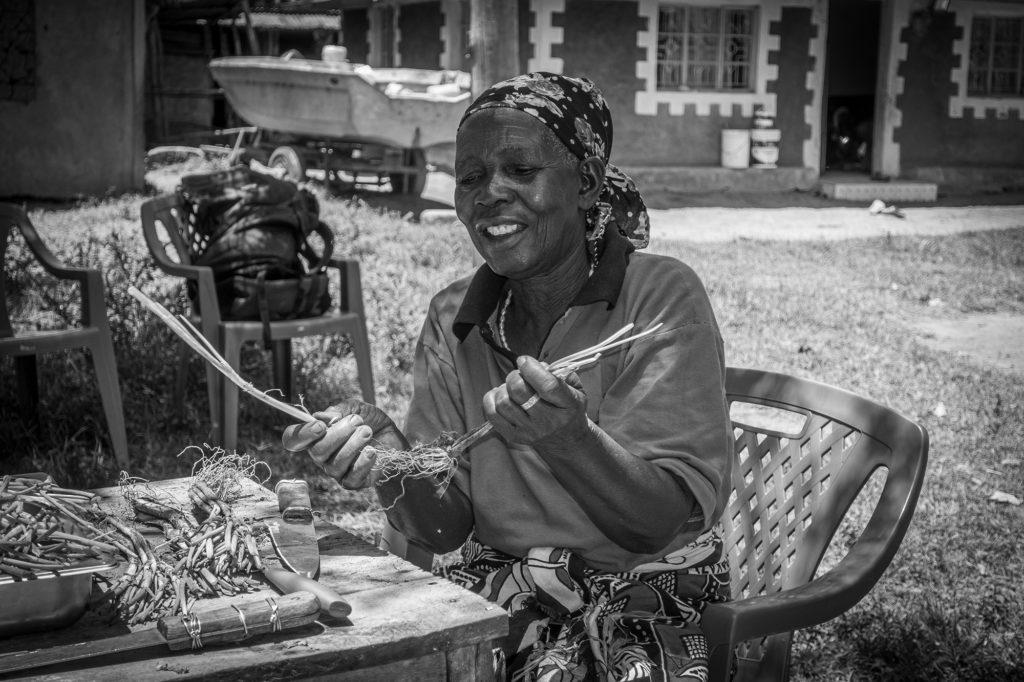
Cleaning and cutting vegetables 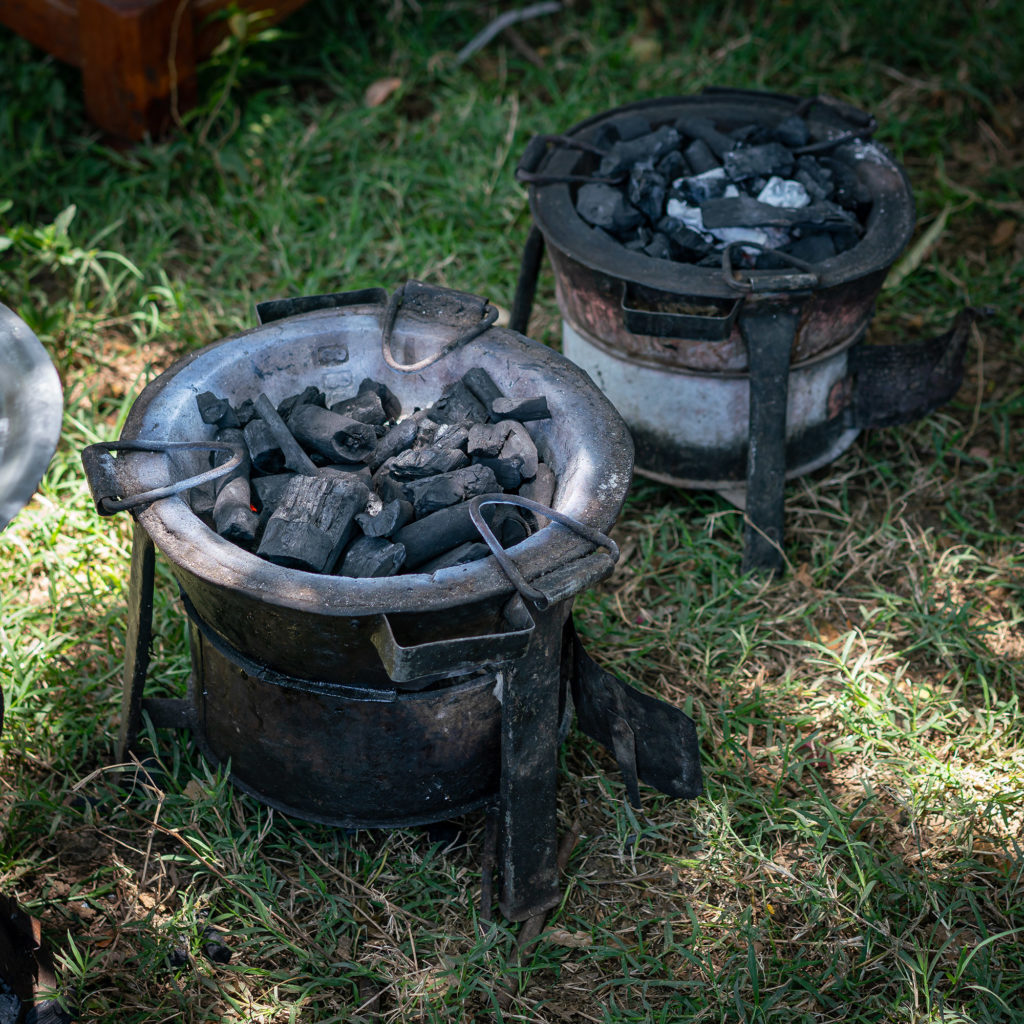
Charcoal in traditional jikos, used for cooking 
Fresh greens were cleaned and cut for cooking 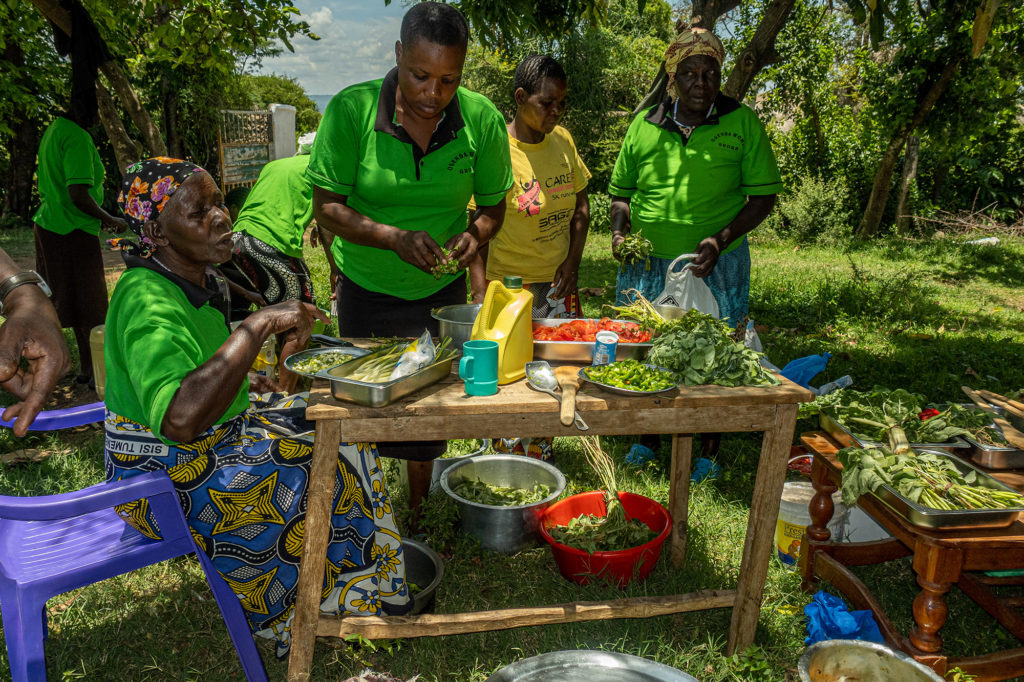
Everyone joined in food preparation 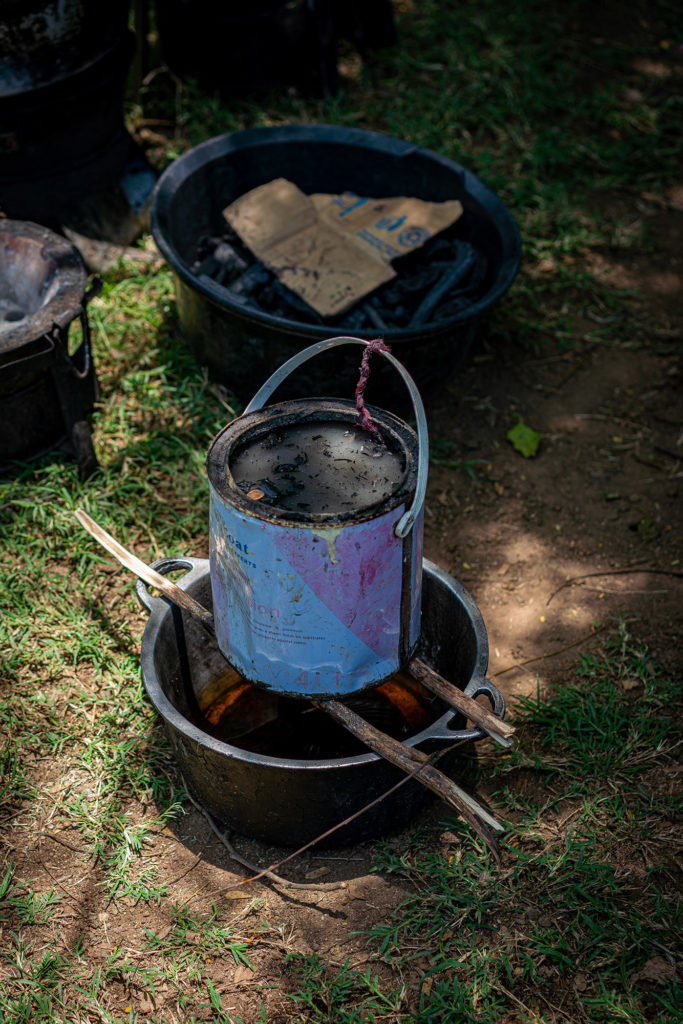
Cooking on top of the jiko 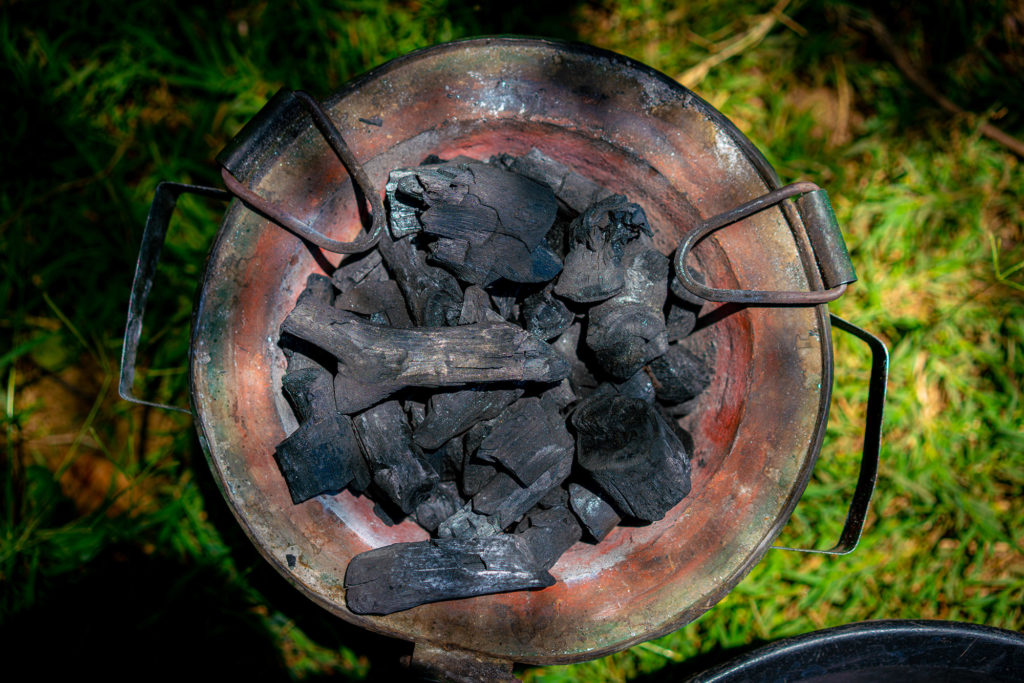
Charcoal in a traditional jiko, used for cooking 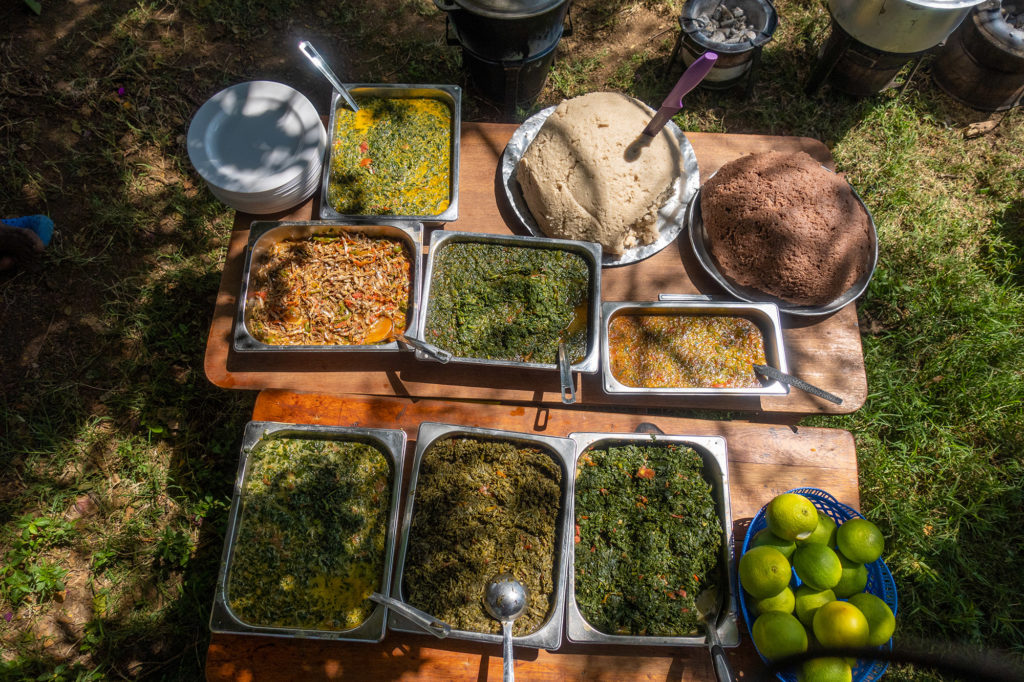
In addition to vegetables, two kinds of ugali were served 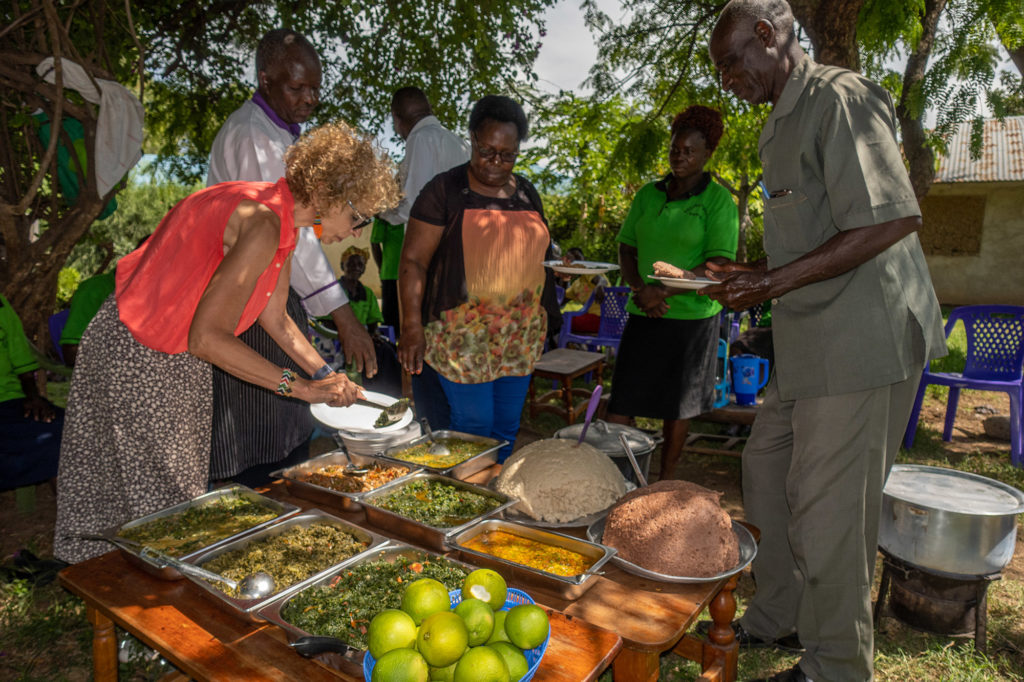
I was one of the first to help myself…everything was delicious 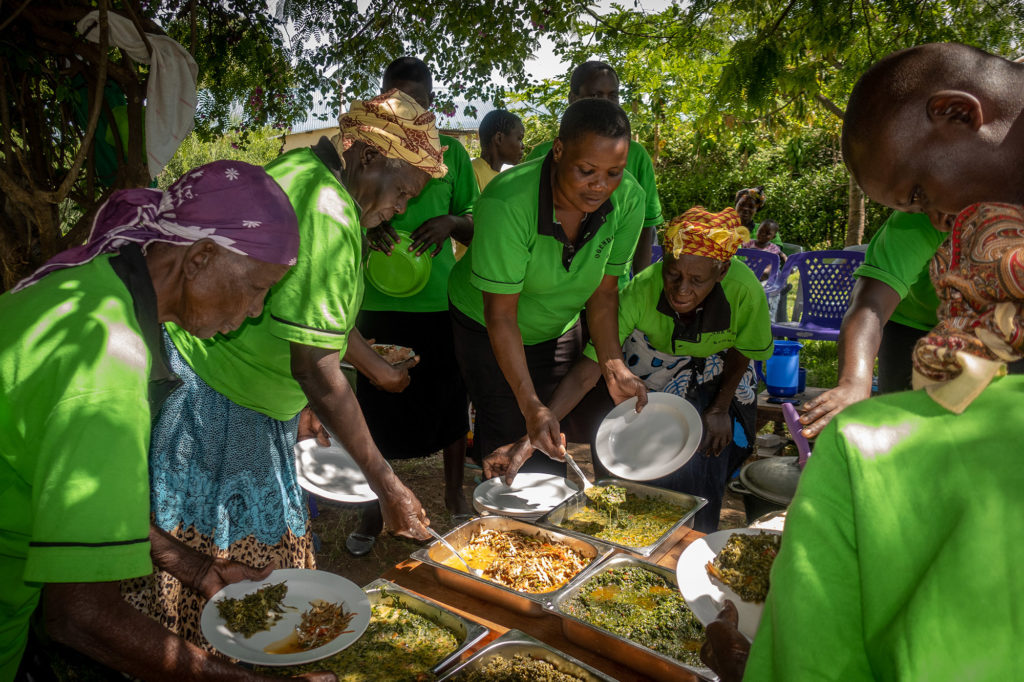
We all filled our plates 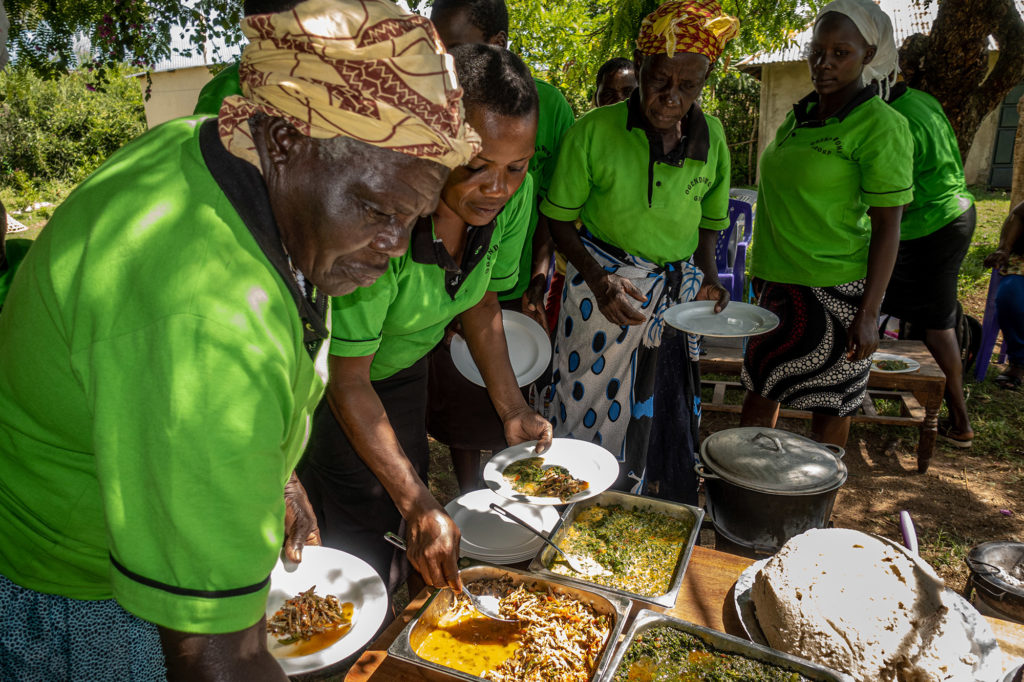
Eagerly tasting the vegetables 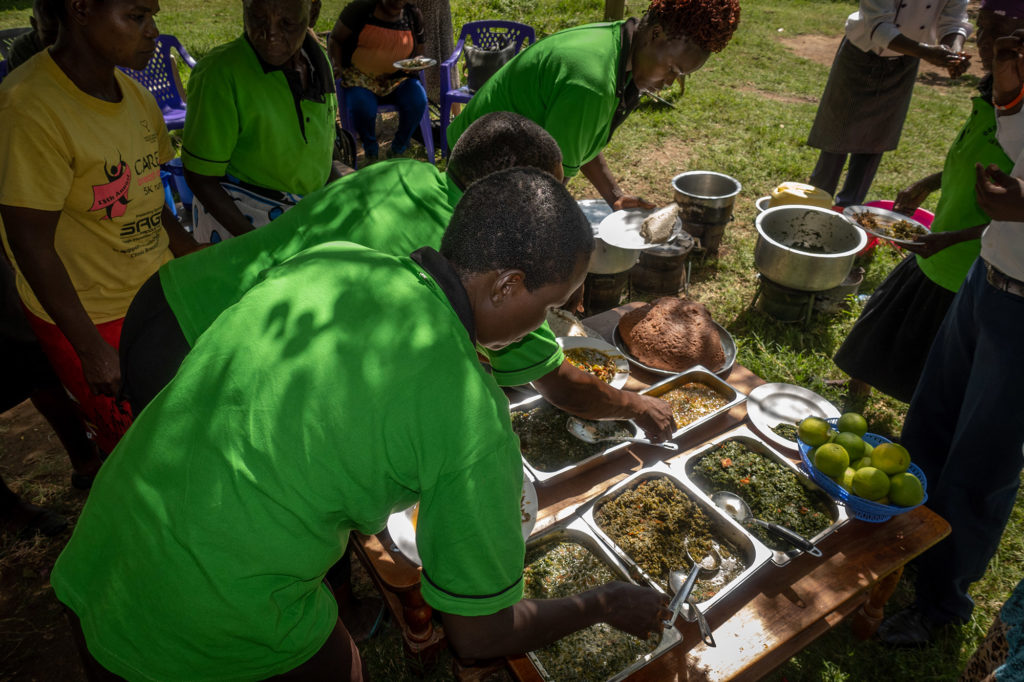
Everyone rushed to the table when the food was cooked and put out 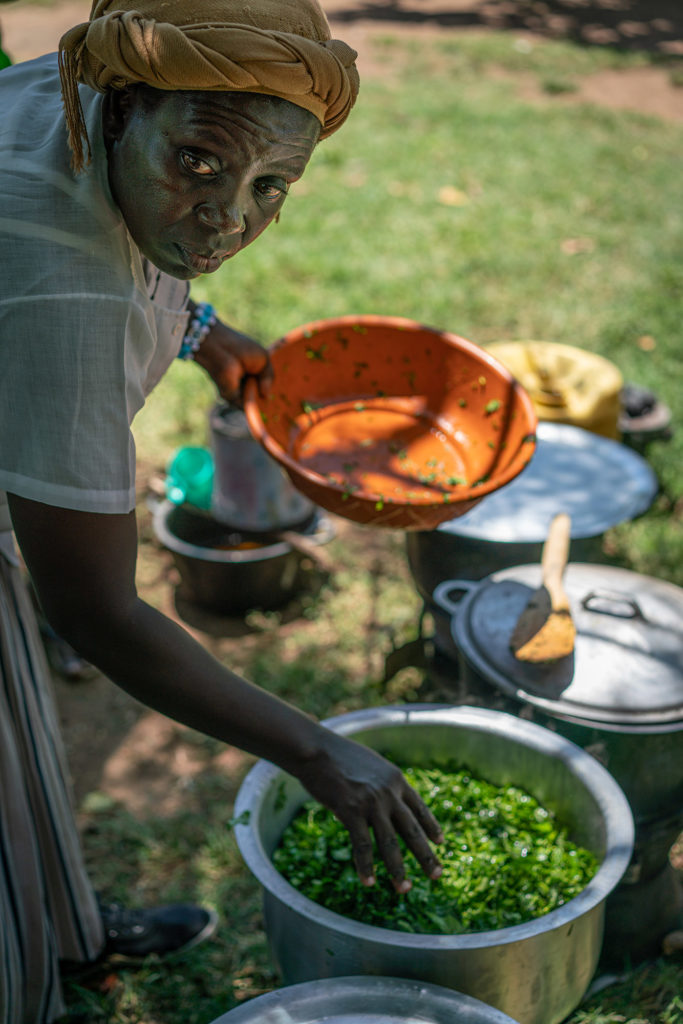
After cleaning and cutting, greens were put in pots for cooking on the jikos 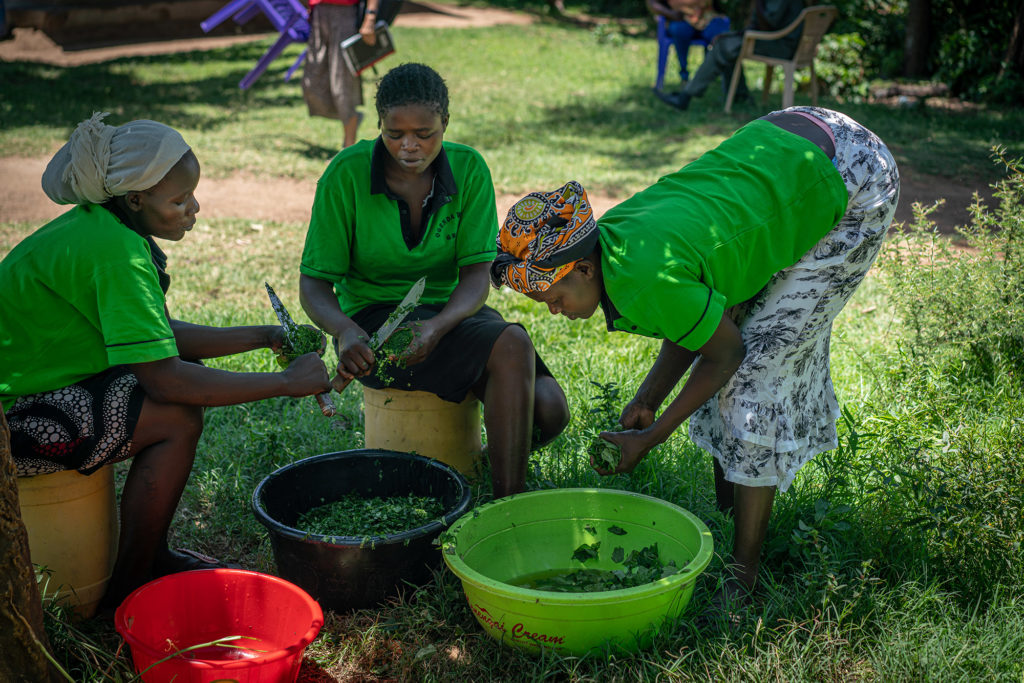
Food preparation was shared by all 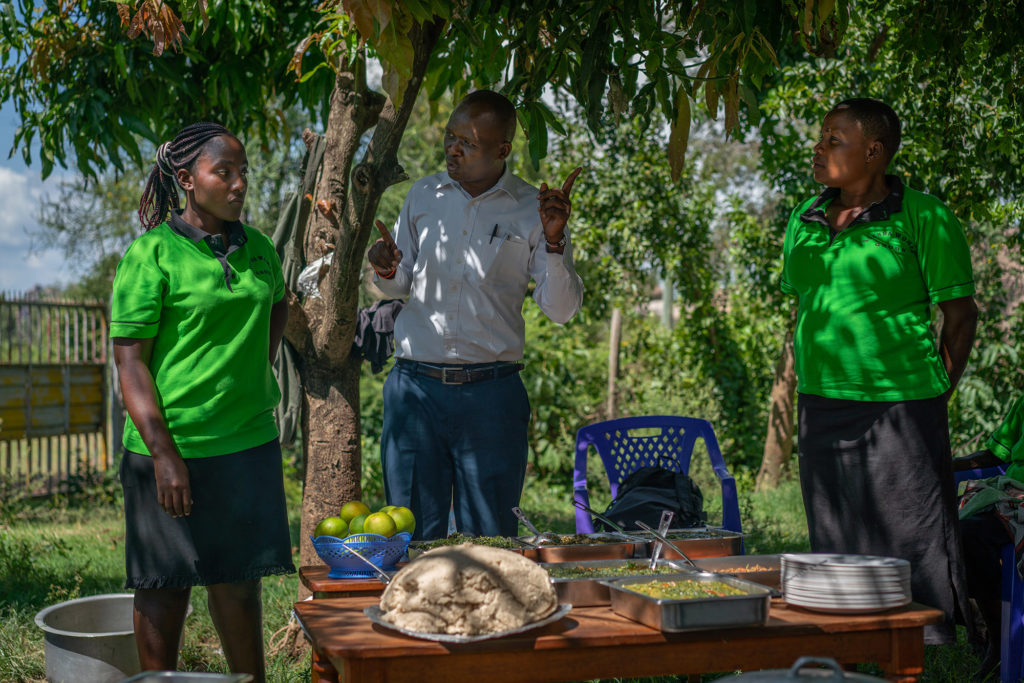
Chef Tom discussed different ways to prepare the vegetables with the farmers 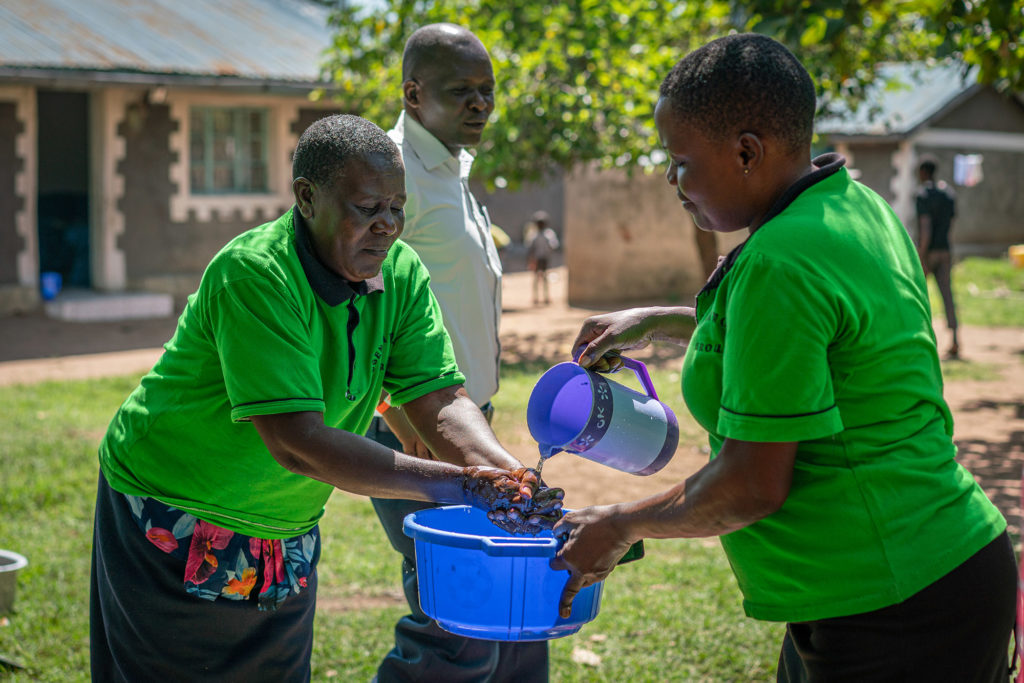
In place of running water, everyone washes their hands with soap and warm water, passed by one of the hosts 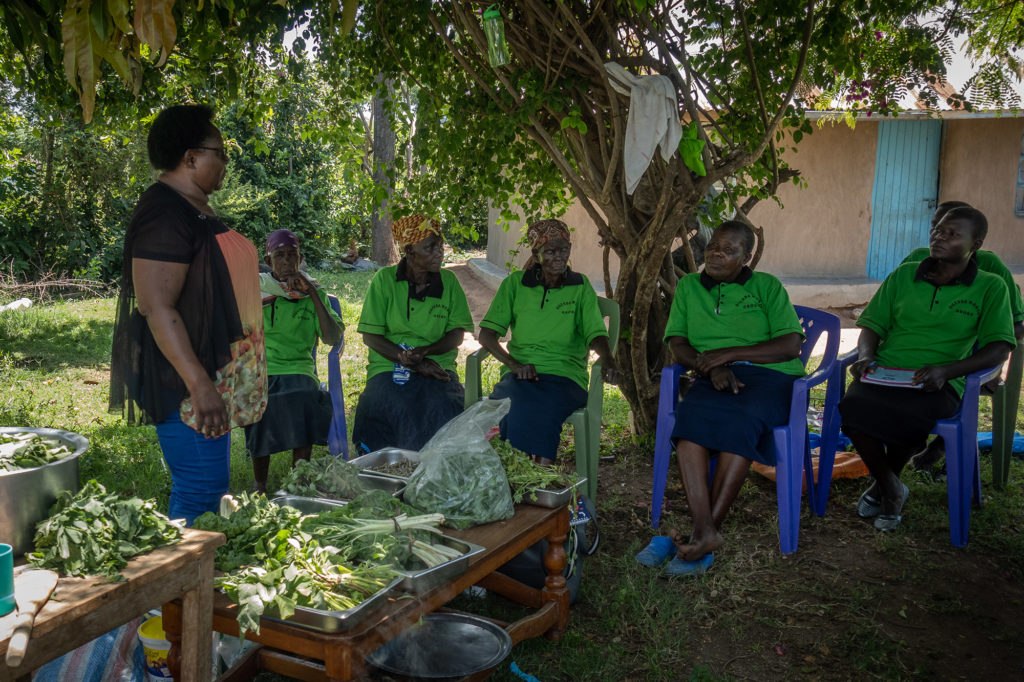
Benter talked about nutrition and proper food preparation techniques with the farmers
